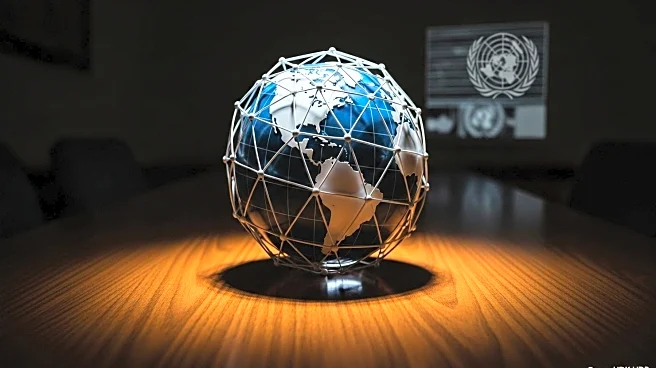What is the story about?
What's Happening?
At the United Nations General Assembly, world leaders and regional organizations are intensifying efforts to end the ongoing war in Sudan, which has resulted in a severe humanitarian crisis. The conflict, which began in April 2023, has led to the deaths of at least 40,000 people and displaced nearly 13 million, with over 24 million facing acute food insecurity. The United States, Saudi Arabia, Egypt, and the United Arab Emirates have proposed a roadmap for peace, including a three-month humanitarian truce followed by a permanent ceasefire. The plan aims to establish an independent, civilian-led government within nine months. The African Union, European Union, and other international bodies are also urging Sudan's warring factions to resume negotiations for a ceasefire.
Why It's Important?
The Sudan conflict has created one of the most severe humanitarian crises globally, affecting millions of civilians. The international community's coordinated efforts to end the war are crucial for stabilizing the region and preventing further loss of life. The proposed roadmap, if successful, could lead to a significant political transition in Sudan, potentially restoring peace and enabling humanitarian aid to reach those in need. The involvement of major powers and regional organizations underscores the global significance of resolving the conflict, which has implications for regional stability and international relations.
What's Next?
The next steps involve convincing Sudan's warring parties to agree to the proposed truce and ceasefire, followed by the establishment of a civilian-led government. Continued international pressure and diplomatic efforts will be essential to achieving these goals. The success of these initiatives could pave the way for long-term peace and stability in Sudan, but challenges remain, including the withdrawal of foreign military involvement and addressing war crimes allegations.
Beyond the Headlines
The conflict in Sudan highlights broader issues of foreign intervention and the role of non-state actors in fueling violence. The international community's response may set precedents for addressing similar conflicts elsewhere. Additionally, the humanitarian crisis underscores the need for effective international aid mechanisms and cooperation to support displaced populations and rebuild war-torn regions.















